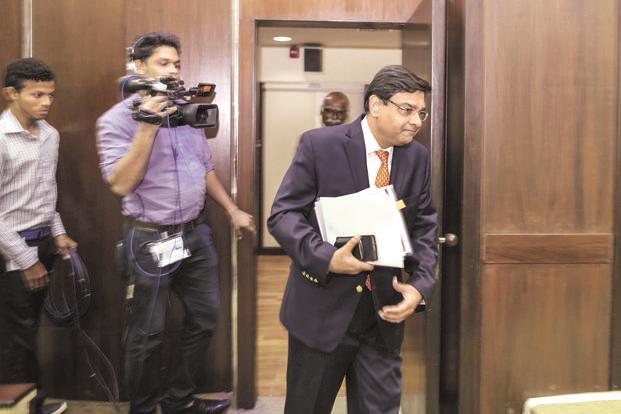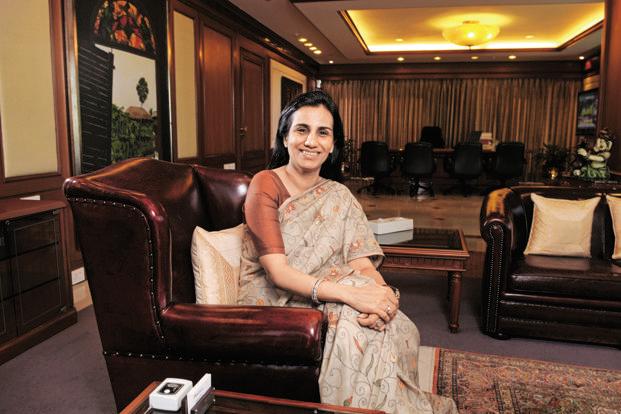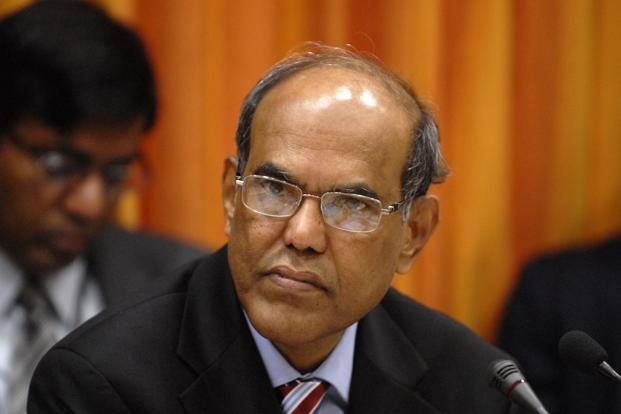Cabinet approval for the recast of power distribution companies, converting their loans into state government bonds, will pare Indian banks’ pile of stressed assets—now around 14% of their loan portfolio. Once bank loans to such companies to the tune of about Rs.4.3 trillion get converted into bonds, there will be relief and banks’ stressed assets will come down to around 10%.
However, it’s too early to uncork the bottle of champagne. There are a few hurdles that will come in the way of attempts to take the scheme from drawing board to action. More importantly, there will be many more instances of high-value loans turning bad which have not been accounted for. We can say banks are hiding or postponing the inevitable or even trying hard to resolve them, depending on whether we are brutally frank, mildly critical or empathize with the bankers—a motley group of smart, super-efficient and inefficient professionals.
One such exposure is the Amtek Auto group. And, it is not small—a debt burden of Rs.21,134 crore in June 2015: a combination of bonds, term loans, working capital loans and external commercial borrowings, or ECBs.
The group is under stress and its latest earnings—a consolidated loss of Rs.987 crore for the year ended 30 September (for the first time since 2004), against a net profit of Rs.848.21 crore the previous year—aren’t good news for the lenders. Amtek Auto follows the October-September financial year. For the September quarter, its stand-alone loss is Rs.158.62 crore against a net profit of Rs.74.37 crore a year ago.
Its total income for the year dropped to Rs.15,213.4 crore from Rs.15,706.6 crore a year ago and the bulk of the erosion happened in the September quarter—a fall to Rs.833.8 crore from Rs.1,042.1 crore a year earlier.
The Delhi-based company, one of the world’s largest auto parts makers and supplier to almost every car maker in India and many overseas, hit the headlines when it defaulted on repayment of bonds worth Rs.800 crore. But that happened in September, so why one more piece on Amtek?
Well, this is an attempt to put things in perspective—how the banking system is used to whetting a typical Indian promoter’s appetite for building an empire of related and unrelated businesses across different geographies. The story is probably not new, but since Amtek Auto promoter Arvind Dham is a first-generation entrepreneur, it’s an interesting case study. I have not sought his version while writing this piece, which is primarily based on research and interaction with the banking community. And, of course, company information available in the public domain.
A 6 December Business Today piece says Dham has chalked out his retirement plans, with his new abode in the Himalayas nearly ready. Dham, who had played cricket with the likes of Kapil Dev, wants to restrict his involvement to an advisory role after the debt crisis is sorted out. No wonder bankers these days see his nephew Gautam Malhotra, in his mid-30s, managing director of Amtek Auto, driving the discussions at the negotiation table.
A fairytale rise
Dham’s was a fairytale rise. After dabbling in the small family business of construction for two years, in 1987 he shifted his focus to auto components, something close to his heart, when Suzuki selected him as one of the vendors for Maruti. Amtek Auto was incorporated in 1988. In 1993, the company started forging operations at Gurgaon and, three years later, in 1996, set up a machining unit there. In 1997, it entered into a joint venture agreement with Benda Kogyo Japan and formed Benda Amtek Ltd for making flywheel ring gears. That was the beginning of a series of foreign collaborations and acquisitions over the next one-and-a-half decades.
The list is a mile long, but let’s highlight some of them.
In 1999, it entered into a joint venture with Ateliers de Siccardi and formed Amek Siccardi at Manesar for making crankshafts. Two years later, it acquired auto component manufacturer Wesman Halverscheidt Forgings and took over the Indsil Auto Components Coimbatore (India) Ltd, a fully automated foundry with machining facilities. In 2002, it set up an iron casting facility at Bhiwadi, Rajasthan, and acquired 14.5% in Ahmednagar Forgings Ltd, later ramping up the stake.
Then in 2005, it acquired a 70% stake in Zelter GmbH and the very next year signed an equal partnership joint venture with a large Canadian company, Magna Powertrain, for making two-piece flex plate assemblies for automotive applications. Another joint venture followed with the same firm.
In the next few years, it set up an aluminium high-pressure die casting facility and another unit for forging, casting and machining (both in Pune), expanded capacity of machined auto parts and forging, and acquired a very large auto precision machining company, Triplex Keltron Group, Amtek’s strongest competitor, running close to 185 different machining lines in various parts of the UK.
It didn’t stop there. In 2008, it signed a joint venture agreement with leading US railcar maker American Railcar Industries Inc. and another with FormTech Industries Llc, based in Royal Oak, Michigan, to set up a facility for making hatebur hot forgings in India and Europe.
The collapse of US investment bank Lehman Brothers Holding Inc. in September 2008 and the dramatic drop in consumer demand that followed in its aftermath did not dampen Dham’s spirit. With equal gusto he floated joint ventures with Japanese steel maker Sumitomo Matal Industries Ltd and Israeli firm Enertec Management Ltd and expanded capacity at local units at a breakneck speed.
How the cookie crumbled
There was super aggressive growth both in India and overseas, backed by plenty of money available in the form of cash flow from business as well as bank loans. The composition of the business, too, changed.
Over the past two years, Amtek’s international business has grown to 44% of total revenue and 24% of total Ebitda, or earnings before interest, taxes, depreciation and amortization—a metric used to measure a company’s operational profitability—but it has only 7% share of the total group debt.
If this sounds a bit vague, look at the figures. I don’t have the September data. For the nine months ending June 2015, Amtek Auto had a revenue of Rs.2,940 crore, other Indian entities were Rs.4,305 crore, and the contribution from international business came to Rs.5,714 crore, taking the total to Rs.12,960 crore.
When it comes to Ebitda, in June, Amtek Auto had Rs.781 crore, other Indian entities Rs.994 crore while the overseas operations’ contribution was Rs.546 crore. The total was Rs.2,321 crore.
Now comes the most interesting piece of this puzzle—the debt. Amtek Auto had a debt of Rs.9,923 crore in June 2015; its other Indian entities, including Ahmednagar Forging and Castex Technologies (formerly Amtek India Ltd) Rs.9,811 crore, and international businesses only Rs.1,400 crore. Out of a total Rs.21,134 crore debt, international businesses’ exposure to lenders was only 7%.
Simply put, by using the Indian banking system, Amtek has built its international business. But its lenders do not get the benefit of the cash flows from the international business as they have been ring-fenced. How?
In November 2014, Amtek Global Technologies (AGT), the holding company for international businesses, entered into a credit arrangement with KKR & Co. Lp under which KKR provided AGT with €235 million of long-term financing. While doing so, KKR restricted Amtek and AGT from making any repayment to its group entities and or any other payment to Indian entities. These details were not disclosed to lenders in India, coming to light only when Amtek was facing a cash crunch leading to delayed payment of interest and principle dues to Indian lenders, beginning April 2015.
On a conservative estimate, if Amtek’s loan cost is around 10%, it has to serve at least Rs.2,100 in interest alone. How can Amtek serve this when its Ebitda from domestic operations is less than this, around Rs.1,775 crore?
In the six months between September 2014 and March 2015, Amtek Auto’s capital expenditure was Rs.1,623 crore. This investment was done in an environment where capacity utilization at the company had been 35% in forgings and castings, 33% in aluminium castings and 50% in machined auto components.
As of March, Amtek Auto had extended Rs.1,230 crore as loans and advances to related parties, including Rs.654 crore to its international subsidiaries (AGT, Amtek Deutschland GmbH, Amtek Investments (UK) Ltd, Amtek Germany Holding GP GmbH and Amtek Precision Engineering Pte Ltd).
In addition, since September 2013, Amtek has acquired three international companies—Asahi Tec, Rege Holding GmbH and Scholz Edelstahl GmbH—with a combined revenue of $710 million and at an estimated value of $227 million.
Auto components could be his first love, but the promoter of Amtek believes in diversification—even if that means getting into new businesses which are totally unrelated to his company’s core business. So, we find Rollatainers Ltd, a thinly traded public listed firm that offers complete packaging solutions. The promoters of the Amtek group hold a 75% stake in this company.
Rollatainers, in turn, owns Barista Coffee Co. Ltd, Mapple Hospitality Pvt. Ltd (hotels and restaurants, with a presence in Delhi, Bengaluru, Jodhpur, Corbett and Bhimtal), franchises in India for Wendy’s and Jamie’s Italian, Welgrow Hotels Pvt. Ltd (which owns the Italian restaurant chain Sartoria) and Kylin, which operates a range of restaurants under the brand names Kylin Premier, Kylin Experience, Kylin Skybar, Go Kylin and Kylin Express.
Then, it has numerous real estate companies in its fold. Some of them are: Adhbhut Infrastructure Ltd, Lotus Infraestates Pvt. Ltd, Hazel Real Estate, Forbes Builders Pvt. Ltd, Ashoka Developers & Builders Ltd, Chandni Realtors Pvt. Ltd, Dhanpat Properties Pvt. Ltd, Dilkhush Buildtech Pvt. Ltd, Ghanshyam Realtors Pvt. Ltd, Kusham Real Estate Pvt. Ltd, Rista Developers Pvt. Ltd and Radhika Buildprop Pvt. Ltd.
Yes, there are other businesses too—OCL Iron and Steel Ltd, Amtek Travels Pvt. Ltd, Amtek Lifestyle Tour Pvt. Ltd, SPT Infotech Pvt. Ltd and Kamakshi Silk Mills Pvt. Ltd. The list could be even longer.
For the lenders, Amtek Auto has been a time bomb ticking away. It failed to repay its institutional holders nearly Rs.800 crore in bonds that were due for redemption on 20 September. Before that, in August, JPMorgan Mutual Fund restricted withdrawals from two of its funds—JP Morgan India Treasury Fund and JPMorgan India Short-Term Income Fund—which have a collective exposure of about Rs.200 crore in Amtek Auto.
The bonds were issued in 2010. Axis Bank Ltd was the lead arranger for the bond issue. Although Amtek Auto has defaulted on Rs.800 crore of non-convertible debentures (including to lenders such as JPMorgan Mutual Fund, IDBI Bank and Axis Bank), media reports indicate that it has selectively repaid high-net-worth individuals holding these bonds, including Bollywood star Aishwarya Rai Bachchan, movie maker David Dhawan and a few others. Amtek promoters denied this to the bankers.



